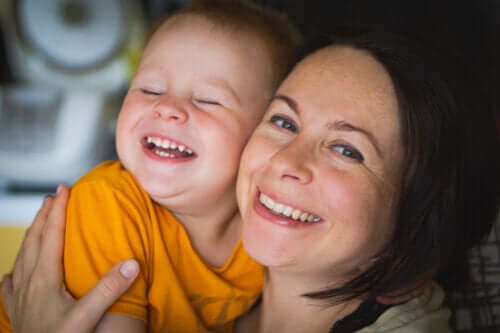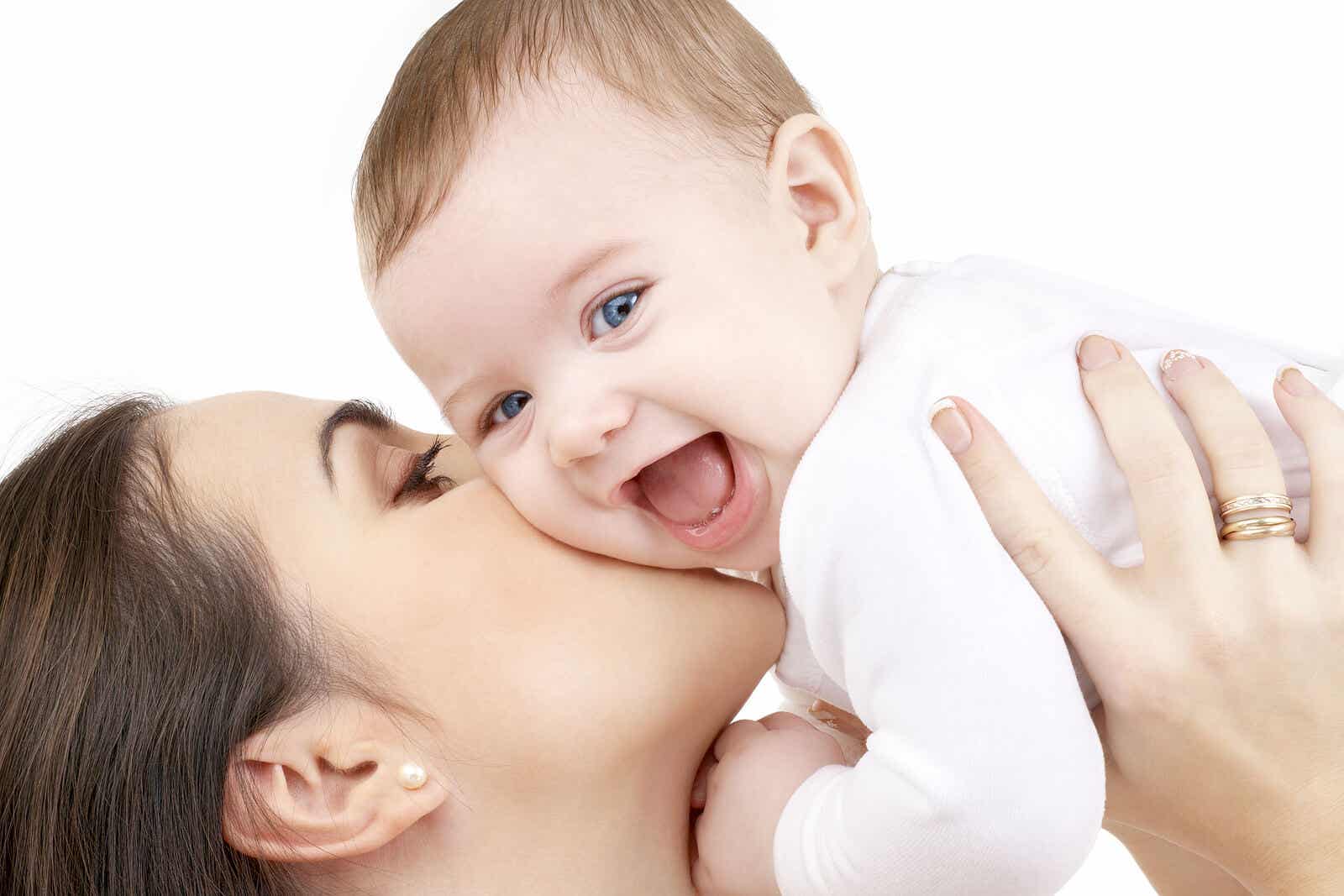Understanding a Child's Emotional Needs: Keys for Parents

Too often, as parents, we focus on our children’s intellectual and physical development, even though their emotional and social development is just as important, if not more so. Children need emotional stability in order to feel happy and secure, so it’s imperative that parents learn to understand their children’s emotional needs. But what exactly are we talking about?
Children also need emotional stability in order to learn. A young child’s emotional security is a prerequisite for any further learning.
Keys to understanding a child’s emotional needs
Below, we’re going to explain what you, as a parent, need to know in order to understand your child’s emotional needs.

Safety and security
Children need to feel safe and secure in order to thrive and develop emotionally. Babies are completely dependent on their parents, but they need to be able to explore their surroundings in order to learn. When they feel loved and safe, they find the courage to begin to discover the world; this is how they grow and learn. Young children also learn best when their home life is predictable and safe.
Routines: Essential for children’s emotional needs
Toddlers who have daily routines feel more secure because their days are predictable. They find it comforting to know what to expect throughout each day. Their routines for sleeping, eating, bathing, and other activities give their day structure.
If there were no predictability during the day, they’d easily become overwhelmed and restless, and home wouldn’t feel like a safe haven. Children who follow routines at home also settle much more easily into school routines and daily chores.
Discipline and consistency
Infants need discipline in order to learn about socially acceptable behaviors and norms; they need to learn to live respectfully among others. The more they learn about the world in appropriate ways, the better their sense of confidence and motivation. They also form better friendships and relationships.
Discipline should be fair and consistent so that children always know what you expect of them and what their limits are. Inconsistent or harsh disciplinary styles don’t result in children learning self-control and self-discipline, as they’re fear-based.
Young children need time to learn to be responsible for their actions and how their actions result in consequences. A fair and calm discipline style in the home will help this process.
Love in emotional needs
Unconditional love and a strong bond with parents are absolutely vital for a good foundation in life. Children need lots of hugs and kisses, and they also need to be told they’re loved. This gives them emotional security.
Uniqueness in emotional needs
To reach their full potential, children must be allowed to be themselves. They need a relaxed and safe environment within which they can develop their own talents and skills, and become individuals in their own right. Don’t underestimate them, but don’t push them toward your own unrealistic vision for them either.

Acceptance, recognition, and approval
When children receive unconditional love, it shows them that they’re accepted just as they are. This builds self-confidence, which is the best gift you can give a child for their journey through school. Acceptance and approval should never be conditional if your child is to learn to feel worthy. This should be automatic and unrelated to their behavior.
Learn to praise your children constructively and acknowledge their actions and efforts. This will become a strong motivator for them – your children need good words to feel capable of doing well!
Milestones in emotional development
Also, here are some typical emotional and social milestones that children reach at different ages:
Three months
- Begin to smile between four and eight weeks
- Like to spend time with primary caregivers
- Don’t want to be alone
- Respond with their eyes when you talk to them
Four months
- Recognize people and shows excitement when seeing them
- Bore if alone
- Laugh out loud
Five to six months
- Like the mirror but don’t recognize their reflection
- Smile with those with whom they have an emotional bond
- Like to listen to familiar voices
- Caress or pull the hair of the person holding them
Seven to twelve months
- Like some people more than others
- Want to be with their primary caregiver all the time
- Get angry if left alone
- Are afraid of places or people they don’t know
Twelve to eighteen months
- Like to make people laugh
- Show happiness or frustration
- Like other children but can’t play with them
- Show jealousy
- Begin to imitate others when they reach 18 months
Two years
- Like to play with others, but doesn’t share toys
- Draw attention to themselves through their behavior
- Sometimes hit or bite to get others to react
- Exercises their will; tantrums begin
- The transition from infant to toddler
Three years old
- Are egocentric and see things from their own perspective
- The “mine” stage begins
- Can’t wait their turn
- Respond to your emotions
- Can do small chores around the house
- Are possessive about things
- Are able to show empathy
- Can play symbolic play
- May have imaginary friends
- Select their friends

Four years old
- Distinguish between self and others
- Confuse reality with fantasy and vice versa
- Their behavior may attract attention
- Appear to be competitive
- Have basic social skills
Five to six years
- Friendships become stable
- Like to dominate
- Try to make suggestions and learns the value of compromise and negotiation
- Approval from friends is important
- Like to compete
- Like to brag about things
- They learn about the consequences of their actions
- Still have difficulty accepting responsibility for their actions
Emotional needs: Why’s it important to develop emotional skills?
Children who have well-developed emotional skills have:
- Better health
- Less stress
- Better relationships with friends
- Better behavior
- A positive attitude
- Less conflict with siblings and parents
- More self-confidence
- Better results in school
- More motivation
- Self-acceptance
- Good communication skills
- The ability to make decisions
- Less influence of peer pressure
From now on, you’ll be able to understand the emotional needs of your children. In this way, it’ll be much easier to take care of them emotionally in a positive way and your children will grow up internally and externally full of family love.
All cited sources were thoroughly reviewed by our team to ensure their quality, reliability, currency, and validity. The bibliography of this article was considered reliable and of academic or scientific accuracy.
- Elias J., M., E. Tobías, S., S. Friendlander, B. (2018) Educar con inteligencia emocional: Cómo conseguir que nuestros hijos sean sociables, felices y responsables. Editorial: DeBolsillo Clave
